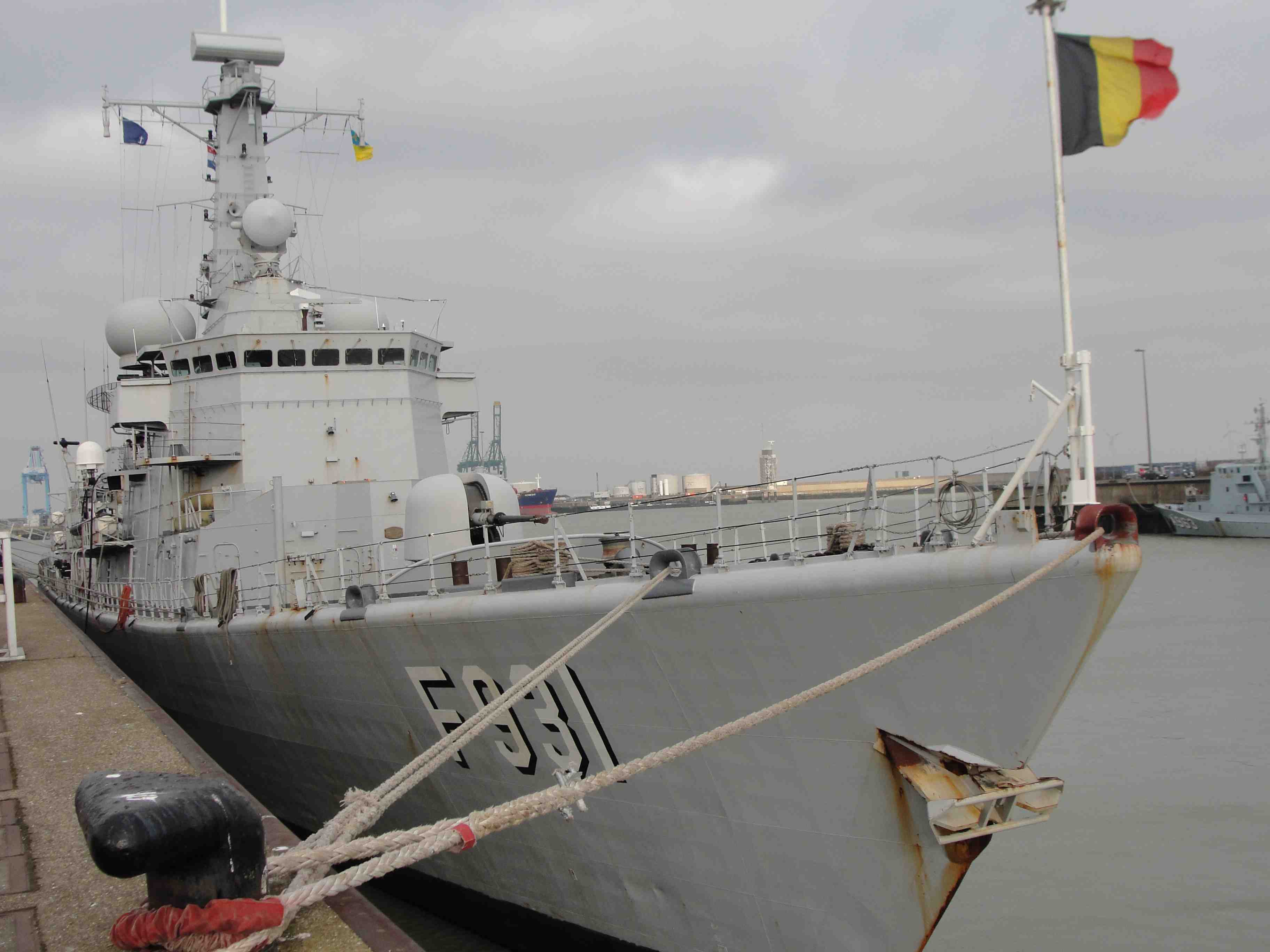The Louise-Marie back home. Interview with its commander Carl Gillis

(In Zeebrugge) After 4 months of mission in the Indian Ocean, the Louise-Marie was back in her home port today in Zeebrugge. I went to visit them and was able to talk for a while with the commander of the Belgian frigate, Carl Gillis. A mission that included two highlights: the capture of 7 pirates, one of whom was extradited to Belgium. And the rescue of 6 Yemeni fishermen. And also the fact that in the area where the Louise-Marie was present, " no boat was hacked».
The Indian Ocean, she knows the Louise-Marie

Like most of Eunavfor's boats, the Louise-Marie has crossed the Indian Ocean from side to side. First of all, 35 days of accompanying ships in the Gulf of Aden, along the international corridor. And then 4 support missions for WFP and AMISOM ships, between Mombasa and Mogadishu.
In Mogadishu, we change the atmosphere
In Mogadishu" we change the atmosphere explains the commander. " It's the war. Not just far away. They shoot anything that moves. “A light weapon as well as a heavier one. The Louise-Marie was not specifically targeted. But several artillery hits were in his direction. Eunavfor ships do not go to port. On arrival, small AMISOM speedboats take over to escort the ship.
Last mission: surveillance of the Somali coasts “ to identify the places from which they leave. They are not really ports. Beaches. And we are waiting for them offshore. ».

What does Commander Gillis take away from the mission? " Preparation is essential. We have thus trained several times here (in Zeebrugge) in docking and arresting pirates. And in the Indian Ocean, it happened as we had planned ».
Importantly, we have was also able to test new equipment such as the new fast boats, the LRAD (a high-range loudspeaker) as well as an infra-red camera, for night observation ».
The arrest of pirates: or how to conduct a judicial investigation
thousands of miles away
After the arrest, the pirates are " interviewed on board the Louise-Marie. And enough information has been collected to allow an official investigation to be opened remotely. It is in particular according to our information (1) the biometric data collected on board and sent to Brussels and to Interpol which made it possible to establish that the “suspect n ° 1” was already involved in an attack, that of the Belgian ship Pompeii. The Bruges investigating judge, Christine Pottiez, has issued an arrest warrant. " At the moment - says Gillis – I took my second hat, and carried out the judicial duties that the judge asked of me, as any OPJ in Belgium would doe”. To ensure the translation, the sailors had on board a member of the Djiboutian navy. " His presence on board was invaluable ».
A release that leaves a taste of disillusion

The bringing to justice of a pirate does not however remove a small disappointment. The negotiations to take charge of the 6 remaining pirates lasted, lasted: 20 days. “Twenty days during which they left us in limbo. And the presence of pirates on board was naturally an additional burden for the ship and the crew ". And Eunavfor wanted to recover the availability of the Louise-Marie. In the end, military reason prevailed over the need for justice. And the six pirates were released on a beach in Somalia. An operation that was not without danger.
Between disappointment for the crew not to go to the end of a mission and relief to be able to resume the normal course of the mission, Gillis estimates that " in the current circumstances, there were no other options. However, I look forward to seeing what lessons we will draw from these events, what initiatives will be taken at the highest level in the face of the impunity of Somali pirates. (cf. interview with Jack Lang).
Putting an end to a myth of the poor fisherman
In the end, for the Belgian commander, he is convinced: “ piracy is not going away. It will always take a military presence to ensure the safety of the boats, especially the weakest ships ". And we also need put an end to the myth of the poor fisherman who sets out to attack boats. Some even have a military background. They are criminals simply. »



